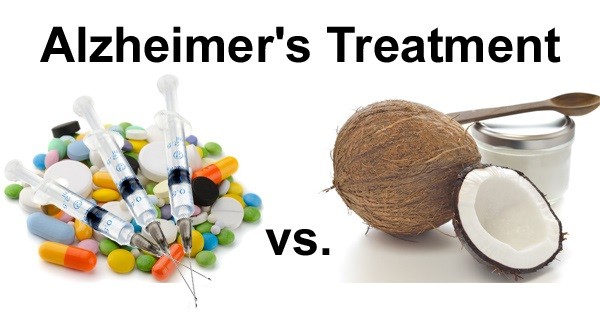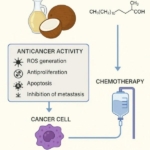
Brian Shilhavy
Health Impact News
The Failure of Big Pharma in Treating Alzheimer’s Disease
Two more Alzheimer’s drug trials have failed. Melissa Healy of the LA Times reported on the most recent failures of Big Pharma to develop Alzheimer’s drugs in January 2014:
Two biological therapies designed to improve the clearance of sticky plaques from the brains of those with Alzheimer’s disease have failed to slow the steady loss of cognitive function in patients with mild to moderate forms of the degenerative disorder.
In late clinical-trial findings published Wednesday in the New England Journal of Medicine, the monoclonal antibodies known as solanezumab and bapineuzumab were shown ineffective at changing the downward cognitive trajectory of Alzheimer’s patients. (Full Story here.)
These are the most recent failures, and they follow a long list of drug failures in Big Pharma’s attempt to develop pharmaceutical products to treat Alzheimer’s Disease. Drug companies Pfizer and Medivation abandoned their Alzheimer’s drug dimebon in January 2012, because the drug not only did not help patients in trials, but it made patients worse. The expensive drug had already reached phase III trials.
Seniors diagnosed with Alzheimer’s Disease represent a huge market for pharmaceutical companies, as Alzheimer’s Disease is increasing rapidly, affecting many millions of seniors. Pharmaceutical companies are anxious to tap into this market, and several pharmaceutical companies are currently trying to develop an Alzheimer’s vaccine. (See efforts to develop Alzheimer’s vaccine in Sweden, Canada, and the U.S.)
In the history of drug marketing, the single most successful drug to ever hit the market was a drug targeted at seniors: Lipitor, the statin drug designed to lower cholesterol levels.
Lipitor has since had its patent expire, allowing cheaper statin generics to come into the market. But during its strongest years in sales, Lipitor almost outsold all other pharmaceutical drugs combined, making it the most profitable drug in history.
Today, about one out of every four Americans over the age of 55 is taking a statin drug. So this age group is a very lucrative market for the pharmaceutical companies, who would desperately like to have a successful Alzheimer’s drug or vaccine be approved for sale.
Are Pharmaceutical Drugs One of the Causes of Alzheimer’s Disease?
In 2011, Dr. Stephanie Seneff published research looking at the effects of a low-fat diet and statin drugs in relation to Alzheimer’s Disease. This research noticed a strong correlation between insulin resistance in the brain and early Alzheimer’s Disease, suggesting that Alzheimer’s might be considered a neuroendocrine disorder of the brain or so-called “type 3 diabetes”.
But the study’s main conclusions regarding the early causes of Alzheimer’s Disease centered around the transport of cholesterol from the blood stream to the brain. The research stated that there is mounting evidence which suggests that a defect in cholesterol metabolism in the brain may play an important role in Alzheimer’s Disease. A nice summary of the brain’s dependency on cholesterol is given:
The brain represents only 2% of the body’s total mass, but contains 25% of the total cholesterol. Cholesterol is required everywhere in the brain as an antioxidant, an electrical insulator (in order to prevent ion leakage), as a structural scaffold for the neural network, and a functional component of all membranes. Cholesterol is also utilized in the wrapping and synaptic delivery of the neurotransmitters. It also plays an important role in the formation and functioning of synapses in the brain. (Study here.)
They point to several studies that show that there is a lack of cholesterol in the brains of Alzheimer’s patients which is so vital for several functions, and also note that other studies show this cholesterol deficiency in dementia and Parkinson’s disease as well. In contrast, high cholesterol levels are positively correlated with longevity in people over 85 years old, and in some cases has been shown to be associated with better memory function and reduced dementia.
In 2012, another study looked at the effects of statin cholesterol-lowering drugs on Alzheimer’s patients. The patients in the study had their statin medication stopped for six weeks, and then restarted. The results showed that during the six weeks when their statins were stopped, the basic brain function of the individuals improved. When the drugs were restarted, brain function got worse again. (Study here.)
So if statin cholesterol-lowering drugs are part of the problem in causing Alzheimer’s Disease, can we really expect that pharmaceutical companies will be able to develop drugs to cure Alzheimer’s?
Coconut Oil is More Successful than Drugs in Treating Alzheimer’s Disease
I realize that to make a statement that coconut oil is more successful than drugs in treating Alzheimer’s Disease is not much of a statement at all, if drugs are one of the primary problems. Quitting pharmaceutical drugs altogether and doing nothing else is probably better than taking drugs to treat Alzheimer’s.
The anecdotal evidence of the success in stopping, and even reversing, Alzheimer’s in some people using coconut oil, however, is so remarkable, that it is foolish to discount what this simple dietary oil can do. After all, it is a fact that Alzheimer’s drugs have been a huge failure until now.
There is currently one trial ongoing looking at the effects of coconut oil on Alzheimer’s Disease. It was started in 2013 at the University of South Florida’s Health Byrd Alzheimer’s Institute. They have a study currently in progress where they have enrolled 65 individuals with mild to moderate Alzheimer’s to measure the effects of coconut oil, versus a placebo, on the disease. The funding reportedly came from a private foundation, as there is obviously no interest or government funds available to research coconut oil, since it would not bring any profit to pharmaceutical companies with their billions of dollars in revenue and government tax-payer funded research dollars at stake. Read more about the study here.
People all across America, and around the world, are not waiting for the results of research trials however. Many people with Alzheimer’s Disease are already seeing a huge improvement, and in some cases a full reversal, of the disease after starting with coconut oil. Here is a partial list of testimonials that we have published here at Health Impact News:
- Coconut Oil Lifts Brain Fog and Stops Memory Loss for 65 Year Old Women
- Film to be Made of Father’s Recovery from Alzheimer’s with Coconut Oil
- Canadian Man Swears by Coconut Oil as Alzheimer’s Remedy
- Woman with End-stage Alzheimer’s Sees Improvement in One Week after Starting Coconut Oil
- Coconut Oil Reverses Dementia in 100 Year Old Woman
- Coconut Oil Reverses the Effects of Alzheimer’s in 50 Year Old Woman
- Alzheimer’s and Coconut Oil: How coconut oil gave me back my brain
- Woman with Dementia Sees Improved Memory and Better Conversation Skills after Starting Coconut Oil
- Coconut Oil Gave my Grandma Back to Us!
Why Does Coconut Oil Work in Treating Alzheimer’s?
The first thing we should make clear is that not everyone who tries coconut oil with dementia or Alzheimer’s sees the same results as reported in these testimonials. Coconut oil does seem to be more effective in those who do not have advanced stages of Alzheimer’s and are still in the earlier stages, although we have seen a few testimonials for late-stage Alzheimer’s as well (See: Woman with End-stage Alzheimer’s Sees Improvement in One Week after Starting Coconut Oil)
However, if we look at Alzheimer’s Disease as a “type 3” diabetes and an insulin resistance problem, coconut oil makes a lot of sense, as does a ketogenic high-fat diet. Coconut oil is known as a rich source of ketone energy, supplying an alternate form of energy to the brain. In fact, pharmaceutical companies are currently trying to develop drugs that mimic the same “ketonic” effect that can be achieved via a high-fat diet. (See: Study: Coconut Oil Could Prevent Neurodegeneration in Diseases like Alzheimer’s)
To learn more about the ketogenic diet, insulin resistance, coconut oil, and treating Alzheimer’s disease, watch this very informative round table discussion with 5 medical doctors, science author Gary Taubes, and nutritionist Robb Wolf:
Also, if the brain is being starved of cholesterol, coconut oil might provide benefits by increasing HDL cholesterol levels. A study appearing in the American Journal of Cardiology in February 2011 showed that the higher men’s HDL cholesterol levels, the longer they lived and the more likely it was that they would reach the age of 85. (Study abstract.)
The high-fat low-carb ketogenic diet has been around since the 1920s, when it was developed at John Hopkins. But it fell out of favor with doctors after the USDA dietary guidelines started condemning saturated fats and cholesterol.
However, the research linking saturated fats and cholesterol to heart disease has never been based on solid data. Recent research has completely exonerated saturated fat from being associated with heart disease. A 2010 meta-study published in the American Journal of Clinical Nutrition looked at almost 350,000 people over a 23 year period and found no association between saturated fat and heart disease. (Study abstract.) A similar meta-study was conducted and published in May of 2013, analyzing the existing medical literature regarding dietary fats and heart disease in the journal Advances in Nutrition. (See: Study: Saturated Fat Not Associated with Risk of Coronary Artery Disease, Coconut Oil and Dairy Fat Healthy)
So if we remove our bias against cholesterol and saturated fat, we begin to see why the ketogenic diet has been so effective for so many neurological disorders over the years. It was originally developed as a dietary cure for children with epilepsy, and worked when drugs did not. (See: Ketogenic Diet Can be used to Control Seizures) Dr. Eugene Arnold of the Ohio State University Medical Center has also studied how a lack of cholesterol can be a contributing factor to autism. (See Adding Cholesterol to Diet Reduces Autism Symptoms)
Dietary Guidelines for Using Coconut Oil in Alzheimer’s Prevention and Cure
One of the criticisms against coconut oil for Alzheimer’s treatment is that it is not well-tolerated by many people. The primary reason this criticism is made, we believe, is because people read these testimonials of how coconut oil has worked so effectively and immediately begin consuming large amounts of coconut oil. In many of the stories that have been reported, seniors are consuming a tremendous amount of coconut oil. Some people are consuming 3 tablespoons three times a day, for a total of 9 tablespoons a day.
For almost all people, this will cause a lot of problems, such as diarrhea. Most people do not tolerate large amounts of coconut oil or other fats right away. One must start out slow with the amount of coconut oil they can tolerate, and then gradually increase the amount to see the desired effect. Also, it is best to start out consuming coconut oil with other foods that are high in protein and fiber, as this is how it is packaged in nature within the coconut meat. Many people mix it in with oatmeal, for example. While oatmeal is not a desirable food allowed in a strict ketogenic diet limiting carbohydrates, the importance of acclimating the body to coconut oil should be seen as more important in the beginning, before moving on to a more strict ketogenic diet.
Nine tablespoons a day is the upper limit of what we have seen people report for therapeutic amounts for Alzheimer’s or other neurological diseases such as ALS. Many others report therapeutic amounts at 3 tablespoons a day, although even that amount is probably too much for most people to start. Much smaller amounts, such a teaspoon at a time mixed with other foods, is best to start and then work slowly towards higher amounts.
As to the type of coconut oil to consume, virgin coconut oil is best, as it is the least processed. Organic is not as important, as very few coconut trees in tropical climates have pesticides applied to them. However, even refined coconut oil has the same medium chain fatty acids that are responsible for the ketogenic effect. So if a cheaper refined coconut oil is all you can afford, don’t be afraid to buy it thinking it is something “bad” simply because it is refined. As long as it is not hydrogenated, it is still a healthy oil. We are not aware of any hydrogenated edible coconut oils sold in the U.S. market, but there may be some in tropical countries where they want to keep the coconut oil solid in higher temperatures. Virgin coconut oils, particularly traditionally produced virgin coconut oils, have higher amounts of antioxidants and possibly other nutrients, so they are preferable if you can afford them.
The one “coconut oil” that is best to avoid is “liquid coconut oil” or what is sometimes referred to as “MCT Oil.” This is not a true coconut oil, but a manufactured product where coconut oil is fractionated, and lauric acid is removed. Lauric acid is the most dominant, and most important, component of coconut oil, and the only other natural abundant source is human breast milk. Lauric acid is a valuable ingredient that is often removed from coconut oil, and the remaining oil left over is what is marketed as “liquid coconut oil” or “MCT Oil.” For more information on this see: Is Liquid Coconut Oil that stays Liquid in Your Refrigerator Real Coconut Oil?
Conclusion: Diet and Prevention is the Best Strategy to Avoid or Reverse Alzheimer’s Disease
There is strong evidence that one of the main contributing factors for Alzheimer’s Disease is a diet too low in fats and excessive pharmaceutical drugs. The low-fat dietary advice, and the demonization of cholesterol, has led to poor health and the development of worthless and harmful statin drugs. The data and evidence on the health benefits of coconut oil and the ketogenic diet is overwhelming today, not only for Alzheimer’s Disease, but for a whole host of other diseases as well.
Research more about the Ketogenic Diet here. For more research on coconut oil and Alzheimer’s Disease, visit the CoconutOil.com’s Alzheimer’s research page. You can also read many research studies on cholesterol and saturated fat at CoconutOil.com.
For other research on dietary intervention for Alzheimer’s Disease, here are some more articles to consider:
DHA From Omega 3 Fats
Turmeric Produces ‘Remarkable’ Recovery in Alzheimer’s Patients
Could Eating This Simple Black Seed Prevent Alzheimer’s Disease?
Ubiquinol Rescues Cells from Statin-Induced Side Effects
Studies Show Cinnamon and B Vitamins can Help Prevent Alzheimer’s
Study: Vitamin B May Protect Against Alzheimer’s
Saffron: Ancient Healing Powers Confirmed by Science
Diet and Toxins Cause Alzheimer’s, Not Genetics
New Research Continues to Show Alzheimer’s is a Type 3 Diabetes
Research: Foods/Spices Slow, Perhaps Reverse Alzheimer’s
Vitamin D and Cholesterol Needed to Prevent Alzheimer’s – Coconut Oil Provides Needed Fuel for the Brain
About the author: Unlike many people who write about coconut oil by simply reading about it, Brian Shilhavy actually lived in a coconut producing area of the Philippines for several years with his family, observing firsthand the differences between the diet and health of the younger generation and those of his wife’s parents’ generation still consuming a traditional diet. This led to years of studying Philippine nutrition and dietary patterns first hand while living in a rural farming community in the Philippines. Brian is the author of the best-selling book: Virgin Coconut Oil: How it has changed people’s lives and how it can change yours!
Read the Virgin Coconut Oil eBook on Your Mobile Device!
Copyright 2014 Health Impact News – permission to reprint fully granted. Links back fully appreciated.




 HHS Secretary Kennedy Breaks His Promise: "War on Saturated Fat" Kept in Tact with New U.S. Dietary Guidelines
HHS Secretary Kennedy Breaks His Promise: "War on Saturated Fat" Kept in Tact with New U.S. Dietary Guidelines Research Continues to Show Virgin Coconut Oil's Effectiveness in Treating Cancer
Research Continues to Show Virgin Coconut Oil's Effectiveness in Treating Cancer Coconut Oil Continues to Benefit Alzheimer's Patients over Drugs as Studies Continue for Neurological Benefits
Coconut Oil Continues to Benefit Alzheimer's Patients over Drugs as Studies Continue for Neurological Benefits How the Simple High-Fat Low-Carb Ketogenic Diet Continues to Change People's Lives
How the Simple High-Fat Low-Carb Ketogenic Diet Continues to Change People's Lives New Studies Continue to Show that Coconut Oil is the Best Oil for Treating Skin Conditions and Maintaining Healthy Skin and Teeth
New Studies Continue to Show that Coconut Oil is the Best Oil for Treating Skin Conditions and Maintaining Healthy Skin and Teeth